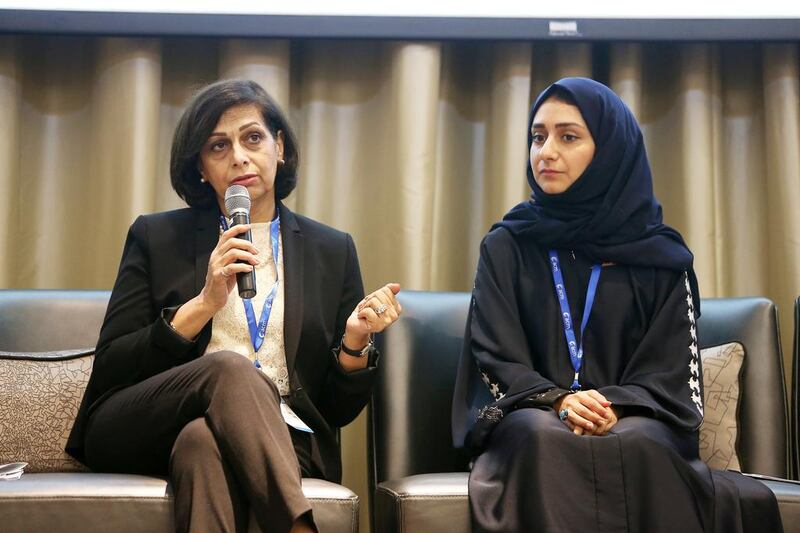DUBAI // Empower people with disabilities to speak up about their needs and teach workers in the services sector to interact with them, participants at a conference heard on Tuesday.
The Government’s policy on improving ease of access for people with disabilities should be embraced by everyone, the Future Accessibility and Assistive Technology Summit was told.
Participants said it was necessary to change mindsets, continue educational efforts, raise public awareness and break down physical barriers that prevent people with disabilities from accessing buildings and public spaces.
“Accessibility has to be ingrained in the DNA of an organisation, not just in the CSR [corporate social responsibility] department,” said Renate Baur-Richter, a programme manager at Sedra Foundation in Abu Dhabi. The foundation is a centre for research that facilitates the integration of people with disabilities in schools and the workplace.
“It’s not just about building a ramp and not just about what you do on your CSR day,” said Ms Baur-Richter.
“It’s about serving all your customers. It’s how you should accommodate all your guests, your consumers, on the best level.
“On the other hand, if you don’t change, you will lose customers because they are really quite a loyal group.
“Empowerment is also an essential part that we encourage people to ask for their rights, to ask for the things they need.”
Nadera Alborno, associate professor of education at the American University in Dubai, said teachers should understand that children with disabilities have the right to be included in mainstream schools to enable integration programmes to work.
“It is the child’s right to be educated and the teachers should also believe that all children can develop,” she said.
“We must tackle the mindset of teachers. Inclusion will not work unless the teacher believes it is the child’s right to be in that classroom.
“Yes, it is additional work, but the benefit of helping the child to develop her potential is large. This will change the attitudes of other children and parents.”
Ayesha Husaini, director of Manzil, a non-profit educational centre for people with disabilities in Sharjah, urged residents to view the Government’s policy on accessibility as guidelines for societal change.
“We need a change in the mindset that this is a policy for ‘them’. It’s actually a policy for all of us,” she said.
“The moment you move to doing things for a targeted group, you move into a charity mode.
“When we talk about accessibility, the objective has to be that it’s for the entire population. Older people can use the same facilities. So it’s about benefiting us as well and we need to move to this greater good.”
Workshops to help workers in service sectors approach and talk to people with disabilities was necessary, experts said.
“It’s very important to educate the public, hotel staff and banks on how to communicate with people with special needs,” said Mahshid Salehi, director of the Dubai Centre for Special Needs.
“They are apprehensive about how to deal with them.
“We have seen a lot of change but, without doing the groundwork and laying the foundation through more education, inclusion is not going to work.”
rtalwar@thenational.ae






